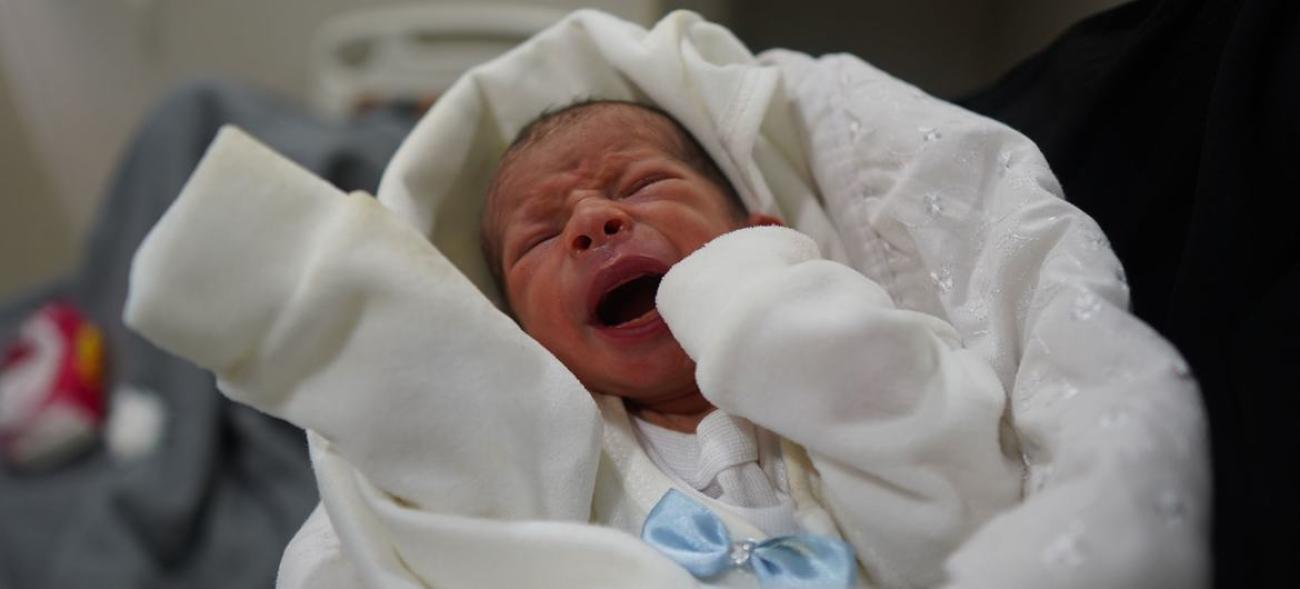Gaza: UN agencies make plea for international action to end hospital attacks

UN Agencies' Regional Directors: "Attacks on medical facilities and civilians are unacceptable and are a violation of international law"
UN agencies issued an urgent call for international action on Sunday to end the ongoing attacks on hospitals, as Israeli forces battle Palestinian militants in the heart of the Gaza Strip.
The regional directors of the UN sexual and reproductive health agency (UNFPA), children’s agency UNICEF and health agency WHO, said they were “horrified” at latest reports which indicate many have been killed – including children – in facilities across Gaza city and other northern areas of the Strip.
The Palestinian Red Crescent Society is reporting that the second largest hospital in Gaza, Al-Quds, is in effect out of service due to fuel shortages with the NGO saying it has only been able to make sporadic contact with the facility.
Al Shifa 'not functioning': Tedros
Writing on social media platform X, the head of the World Health Organization, Tedros Adhanom Ghebreyesus said having managed to establish contact with the largest hospital, Al Shifa, in the past few hours, "the situation is dire and perilous."
He said medics had been three days without electricity and water "and with very poor internet which has severely impacted our ability to provide essential care.
"The constant gunfire and bombings in the area have exacerbated the already critical circumstances. Tragically, the number of patient fatalities has increased significantly", he added.
He said the hospital "is not functioning as a hospital anymore", concurring with the regional directors that there must be international intervention.
Communications down
News reports quoting the health ministry, said earlier on Saturday that five wounded patients have died because they could not be operated on due to a lack of fuel.
Two babies in the intensive care unit there were reported to have died on Saturday, with water, food and electricity cut off.
Tedros expressed grave concern for the safety of staff and patients caught in crossfire late on Saturday noting that Israeli tanks were reportedly surrounding Al Shifa.
The Israeli military has repeatedly denied its forces are targeting hospitals, claiming that Hamas and other militants are using the facilities as shields with their headquarters located beneath Al Shifa.
“Intense hostilities surrounding several hospitals in northern Gaza are preventing safe access for health staff, the injured, and other patients”, said the statement released by Laila Baker of UNFPA, UNICEF Regional Director Adele Khodr, and Dr. Ahmed Al-Mandhari, of WHO.
Babies dying
“Premature and new-born babies on life support are reportedly dying due to power, oxygen, and water cuts at Al-Shifa Hospital, while others are at risk. Staff across a number of hospitals are reporting lack of fuel, water and basic medical supplies, putting the lives of all patients at immediate risk.”
Over the past 36 days, WHO has recorded at least 137 attacks on healthcare in Gaza, resulting in 521 deaths and 686 injuries, including 16 deaths and 38 injuries of health workers, the regional directors said.
Attacks on medical facilities and civilians are unacceptable and are a violation of international law, they continued.
Right to medical assistance
“They cannot be condoned. The right to seek medical assistance, especially in times of crisis, should never be denied”, the statement said.
More than half of the hospitals in the Gaza Strip are closed while those remaining “are under massive strain”.
Shortages of water, food, and fuel are also threatening the wellbeing of thousands of displaced people, including women and children, who are sheltering in hospitals.
Death and despair
“The world cannot stand silent while hospitals, which should be safe havens, are transformed into scenes of death, devastation, and despair.
“Decisive international action is needed now to secure an immediate humanitarian ceasefire and prevent further loss of life, and preserve what’s left of the health care system in Gaza”, the directors said.
“Unimpeded, safe and sustained access is needed now to provide fuel, medical supplies and water for these lifesaving services. The violence must end now.”
The Humanitarian Coordinator for the Occupied Palestinian Territory, Lynn Hastings, warned that fuel is not only putting lives at risk in hospital, but water pumps, desalination plants and wastewater treatment centres are all "grinding to a halt."
She tweeted that public health crises are emerging and "humanitarian operations will be next."

